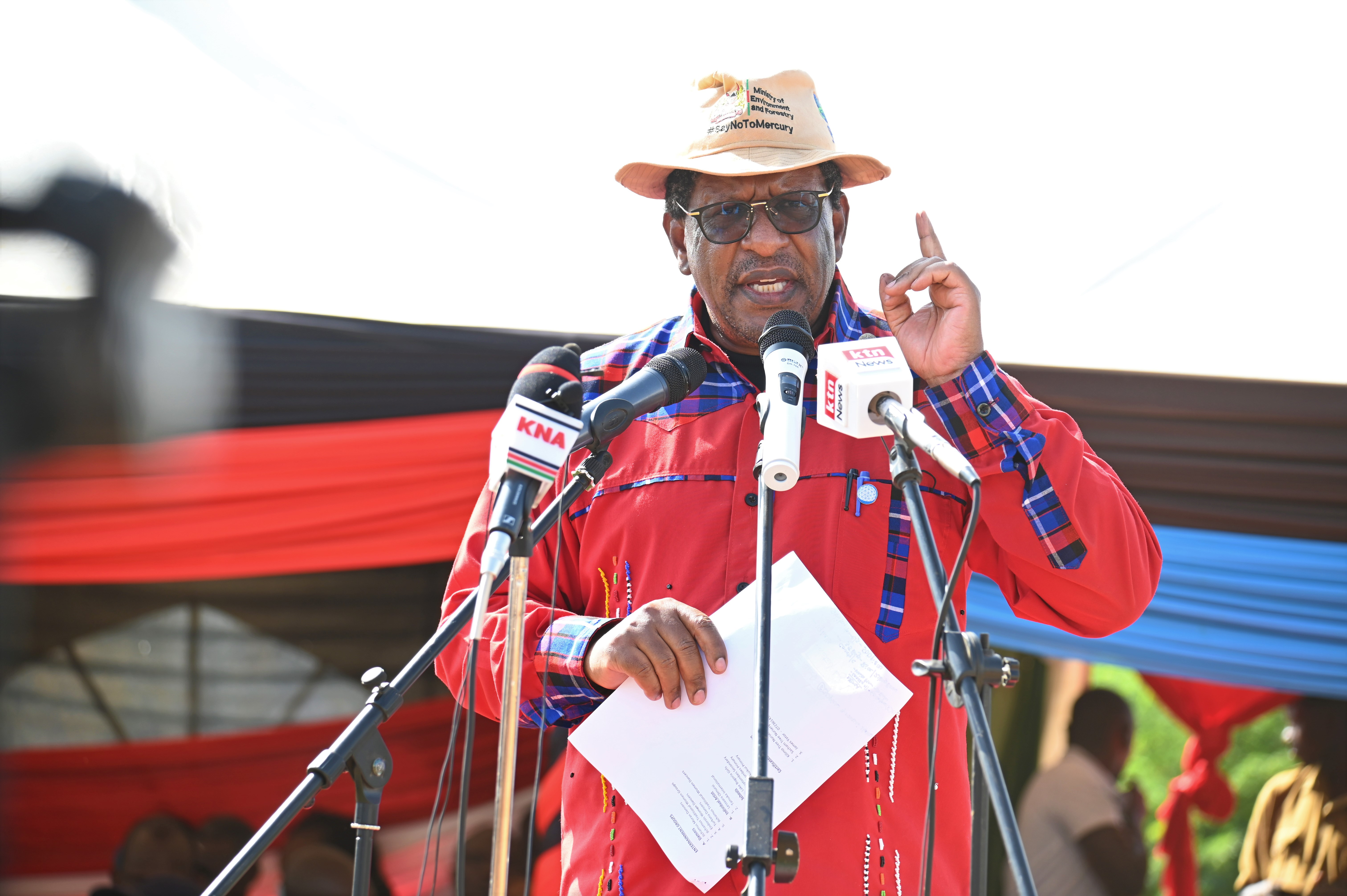
Promoting FMNR to Cushion Communities Affected by Invasive Mathenge Weed in Kenya
June 18, 2022
By Hellen Owuor, Communications Officer, World Vision Kenya
The beginning of 2022 saw Baringo County among other counties in Kenya face severe drought with cases of livestock death, vegetation deficit, low milk production and reduced water levels in water sources reported.
Currently, green vegetation can either be spotted in the farms of those with access to irrigation and from the thick canopies of Prosopis Juliflora, a weed locally known as mathenge. For a long time, local communities in Baringo County have suffered as a result of the existence of the invasive weed that has proved to cause more harm than good.
Mathenge multiplies rapidly thereby reducing biodiversity, taking over farmlands, causing the death of livestock due to eating its poisonous thorns, loss of vegetation and causing a reduction of pasture that is much needed by the pastoral communities for their livelihoods and survival of livestock.
On Friday 17th June 2022, The Environment and Forestry Cabinet Secretary, Keriako Tobiko declared Prosopis Juliflora a threat to national security. This was at Eldume Primary School, Ilchamus Ward, Baringo County where leaders and community members came together to observe the World Day to Combat Desertification and Drought that was themed ‘rising up from drought together’.

Ministry of Environment and Forestry Cabinet Secretary, Keriako Tobiko (in red shirt) with community members during the commemoration of the World Day to Combat Desertification and Drought in Baringo County. ⒸWorld Vision Photo/ Hellen Owuor
According to Mr. Tobiko, Prosopis Juliflora spreads at the rate of 15% per year and has so far colonized 1 million acres of land in Kenya. He added that the Ministry has developed a strategy to eradicate Mathenge in Kenya.

Caption: The Environment and Forestry Cabinet Secretary, Keriako Tobiko addressing community members at Eldume Primary School during World Day to Combat Desertification and Drought. ⒸWorld Vision Photo/ Hellen Owuor
To contribute to the government’s efforts, World Vision through the Central Rift Farmer Managed Natural Regeneration Scale-Up Project (CRIFSUP), is working with smallholder farmers and pastoralists in Baringo County to strengthen food security and livelihood resilience, as they grapple with the effects of drought and invasion of the mathenge weed.

Caption: Women perform a song on environmental conservation during the World Day to Combat Desertification and Drought at Eldume Primary School. ⒸWorld Vision Photo/ Hellen Owuor
CRIFSUP has trained lead farmers on best management practices and alternative uses of the Mathenge tree products.
“Managing this weed by pruning has been the most effective compared to uprooting and charcoal burning because once the seeds are burnt, their germination is enhanced through seed scarification,” Titus Kimono, CRIFSUP Project Officer, in Baringo County mentions.

Caption: Titus Kimono, a CRIFSUP Project Officer explaining the benefits of the Farmer Managed Natural Regeneration (FMNR) approach. ⒸWorld Vision Photo/ Hellen Owuor
Farmers in the area are trained to encourage natural regeneration of indigenous trees that are beneficial to them. At the same time, they are taught on how they can sell mathenge tree products to boost income and improve their livelihoods.

Caption: A CRIFSUP fead Farmer uses a demonstration model to explain the transformation witnessed on farmlands as a result of practicing FMNR. ⒸWorld Vision Photo/ Hellen Owuor
“Prosopis Juliflora can be used as firewood, to make furniture and the seeds as animal feed,” Kimono adds.
The pods of Mathenge are grounded and mixed with grass to make pasture. When consumed bare, the pods cause loss and breakage of teeth of livestock.
Controlling the invasion of Mathenge in Baringo County and promoting natural regeneration of indigenous trees will improve the lives of communities. Their livestock will be safer from harm, there will be increased pasture production and sufficient food for household consumption.
The Central Rift Farmer Managed Natural Regeneration Scale Up Project (CRIFSUP) aims to strengthen food security and livelihood resilience for smallholder farmers and pastoralists in Kenya by 2026 through FMNR and other restoration techniques. CRIFSUP is funded by the Australian Department of Foreign Affairs and Trade (DFAT) through the Australian NGO Cooperation Program (ANCP). The project is in the 2nd Phase and being implemented across four counties in Kenya (Baringo, Elgeyo Marakwet, Nakuru and West Pokot).
